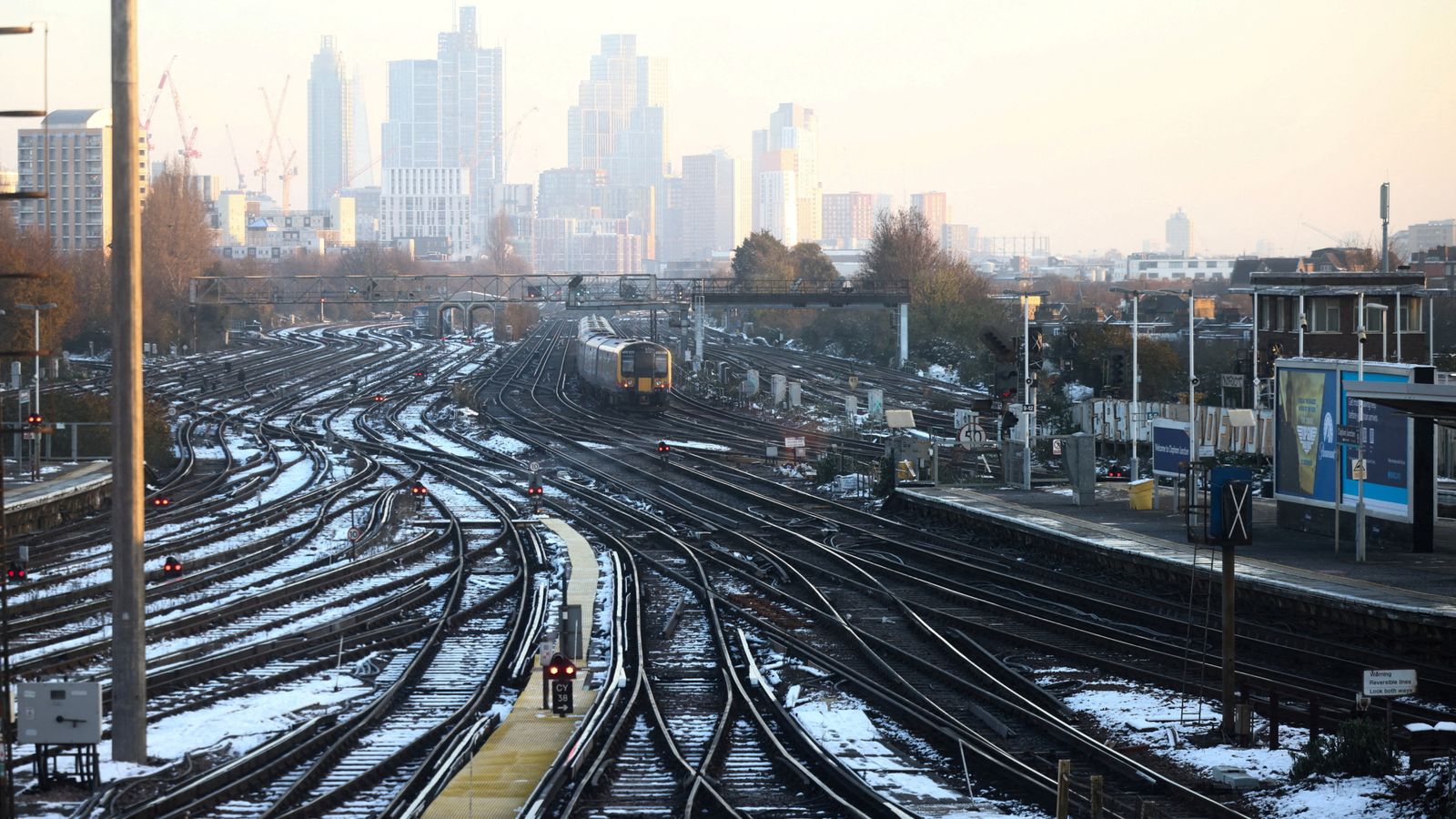Passengers are facing a “crisis” on the railways with service reliability plunging to its lowest level in nearly a decade of recorded data, according to new analysis.
Office of Rail and Road data shows the cancellations score for all operators during the four weeks to 7 January was 8%, which was double the proportion from the previous period.
Avanti West Coast cancelled the equivalent of about one in five services and registered a cancellations score of 18.9% – one of the highest figures recorded for any operator in records dating back to April 2014.
Southeastern had the second worst cancellations score with 12.2%, which was its most on record.
It was followed by Govia Thameslink Railway – which consists of Southern, Thameslink, Great Northern and Gatwick Express – and TransPennine Express, which both had a score of 11.9%.
Cancellations scores reflect the percentage of services that are either fully or part-cancelled, with part-cancellations counted as half a full cancellation.
Labour said “13 years of Conservative failure” had left the nation with “second-rate infrastructure and rail services in crisis” – and accused ministers of handing over “millions in taxpayer-funded performance bonuses to failing operators”.
Resolving rail disputes would have cost less than strikes, admits minister
Regulated rail fares in England will increase by up to 5.9% from March
Train operator TransPennine Express issues ‘do not travel’ alert
But a Department for Transport spokeswoman said: “We are working closely with train operators to ensure disruption is kept to a minimum and long-term solutions are put in place, including the swift recruitment and training of new drivers.”
The statistics do not include services removed from timetables after 10pm the previous day, which means the impact on passengers is likely to have been worse than the figures suggest.
A rail industry source noted the reliability figures cover a period when operators were badly affected by an overtime ban introduced as part of industrial action.
Read more on Sky News:
Regulated rail fares to increase from March
Resolving strikes would have cost UK less money – minister
Winter of discontent – dates for UK strike action
Difficulties in resuming services are also experienced on the day after strike action.
Responding to the analysis by the PA news agency, an Avanti West Coast spokesman said: “We know that our customers have not been getting the service they deserve and we’re sorry for that.”
The Rail Delivery Group, which represents operators, said the COVID pandemic has had a long-term impact on services and there has been further “severe disruption” due to the current national dispute.






















